In this section you can find all our resources organised by type, topic and sorted chronologically. Click on the kind of resources you’re searching for and browse our latest publications!
Library
Factsheets and manuals
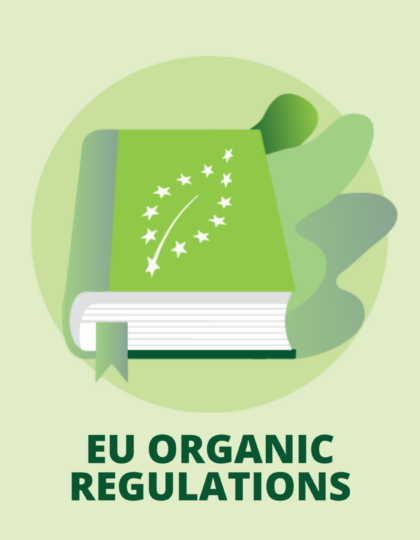
25/06/2024
Organic regulations
Management of pesticide residues in organic products – a follow-up brief
IFOAM Organics Europe published its Position Paper on the Management of Pesticide Residues in Organic Products early summer in 2023.…
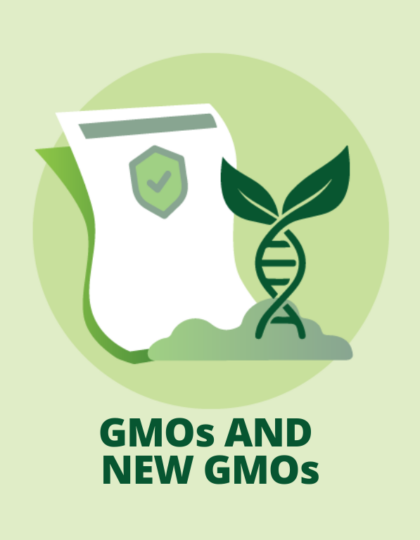
19/07/2023
GMOs
Global Safety & Risk Assessment Protocol for New Genomic Technologies
The environmental release and widespread production and consumption of genetically modified organisms (GMOs) since the mid-1990s has raised serious ecological,…
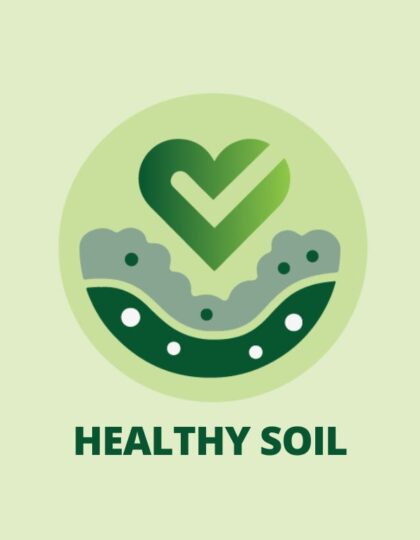
04/07/2023
Soil
Organic farming benefits for agricultural soils
Organic farming benefits for agricultural soils. Soil health is a cornerstone of organic farming and health is one of the…

06/12/2022
Plant health care
Press briefing: EU’s first legally binding pesticide reduction targets under threat
IFOAM Organics Europe & GLOBAL 2000 press briefing on the background and threats to the EU Sustainable Use of Plant…
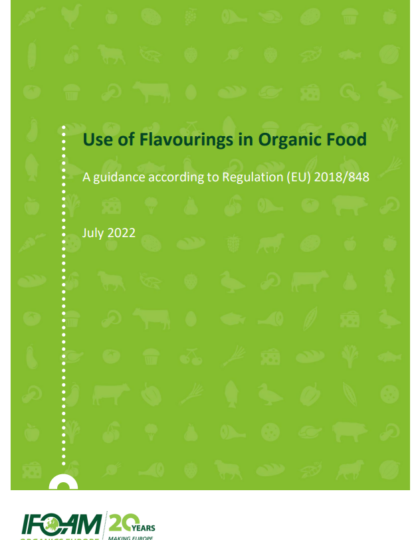
30/06/2022
Organic regulations
Use of Flavourings in Organic Food
This guidance is based on IFOAM Organics Europe understanding of the new Regulation (EU) 2018/848 (referred to in this document…
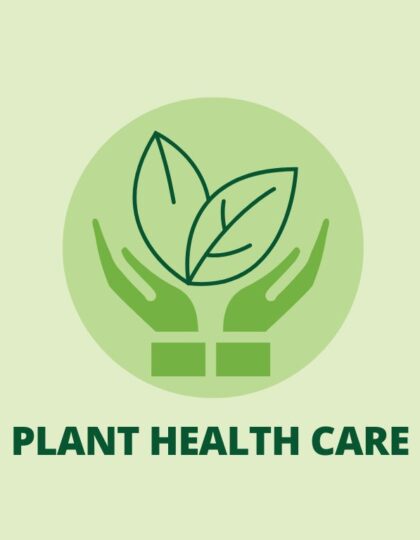
09/06/2022
Plant health care
Proposal to develop a new indicator for monitoring the Farm to Fork pesticide reduction target
IFOAM Organics Europe calls for the European Commission to develop a new indicator for monitoring the Farm to Fork pesticide…
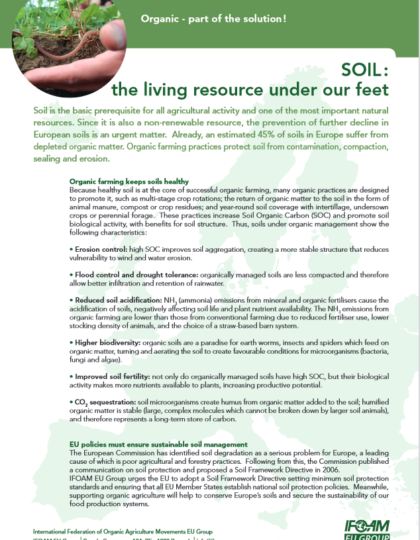
22/06/2009
Soil
Organic - part of the solution! Soil
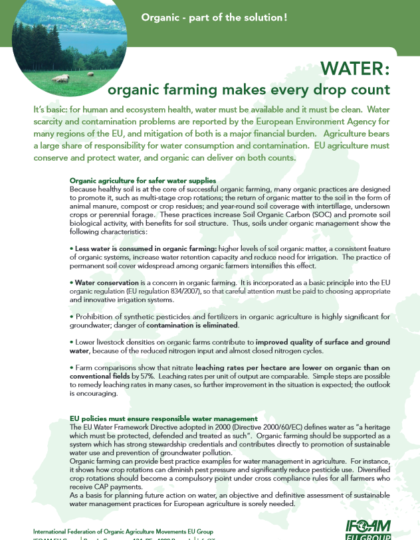
22/06/2009
Water
Organic - part of the solution! Water
Leaflets

Plant health care in organic farming - The role of natural substances in a biodiversity-based system approach
One of organic agriculture’s defining traits is its approach towards plant health care, relying mainly on preventive and indirect measures…
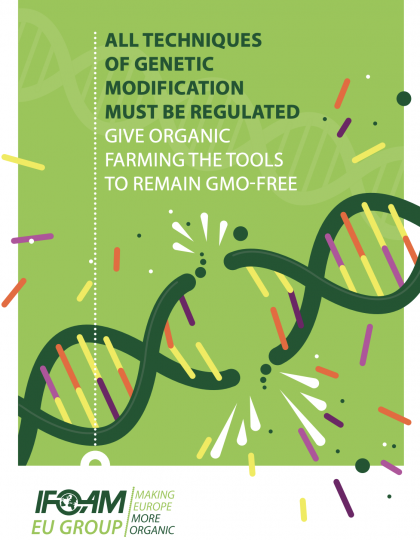
05/06/2019
GMOs
All techniques of genetic modification must be regulated
Organic farming is GMO-free per definition but is endangered by the development of new techniques of genetic modification. If their…
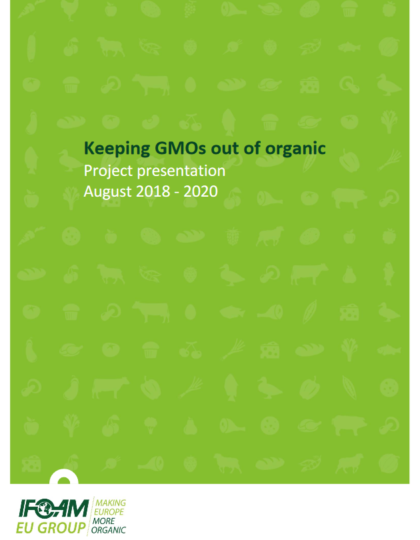
14/09/2018
GMOs
Keeping GMOs out of organic - Project presentation August 2018-2020
The project ‘Keeping GMOs out of organic’ was developed in 2018 and revised in August 2018, after the adoption of…
Reports and studies
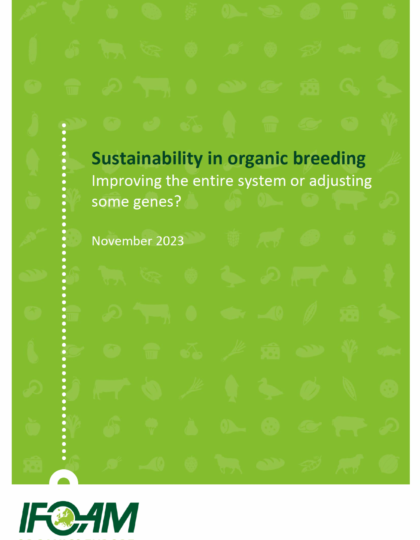
Sustainability in organic breeding. Improving the entire system or adjusting some genes?
Sustainability in organic breeding. Improving the entire system or adjusting some genes? is a briefing providing an overview of the…

23/02/2023
Plant health care
Toxicological comparison of pesticide active substances approved for conventional vs. organic agriculture in Europe
There is much debate about whether the (mostly synthetic) pesticide active substances (AS) in conventional agriculture have different non-target effects…

12/12/2022
Plant health care
Closing nutrient cycles: Reshaping EU agri-food system for greater autonomy and sustainability - Event report
As announced in the EU Biodiversity and Farm to Fork strategies and in the Zero Pollution Action Plan, the European…

Report on contaminants present in food - Evaluation of survey results
This report contains the results of a survey on contaminants on food and how to deal with them. The survey…
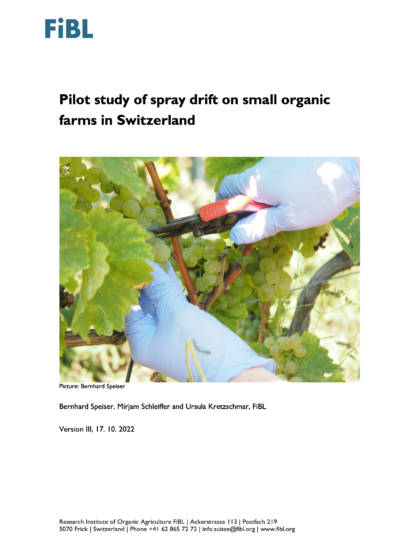
Pilot study of spray drift on small organic farms in Switzerland
Spray drift is a major problem for organic farmers, particularly in small fields (Speiser and Kretzschmar, 2021). To support the…

Cases of pesticide residues – Illustrating the decisions taken by control bodies and control authorities in Europe
The handling of organic products contaminated with pesticide residues is highly diverse within Europe. Also, differences between different actors within…

Organic Agriculture and the Sustainable Development Goals – Part of the Solution
Institute: EOSTA and Nature & More – Author: Simon de Schaetzen
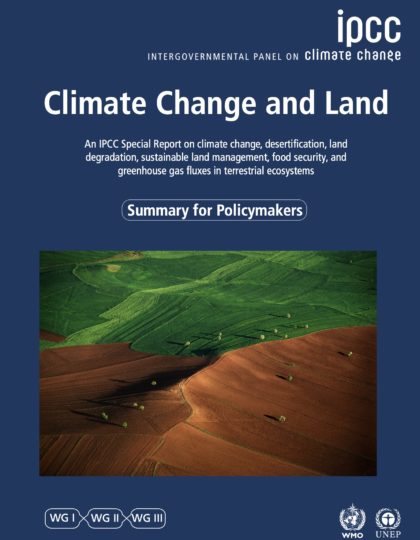
Climate Change and Land - An IPCC special report on climate change, desertification, land degradation, sustainable land management, food security, and greenhouse gas fluxes in terrestrial ecosystems
Institute: Intergovernmental Panel on Climate Change (IPCC) – Authors: 107 experts from 52 countries
Press releases

30/09/2024
Plant health care
IFOAM Organics Europe and European Citizens' Initiative condemn "fake pesticide reduction"
Methodologies are a political choice: Harmonised Risk-Indicator (HRI-1) misleads EU citizens and harms organic agriculture BRUSSELS/VIENNA, 30 SEPTEMBER 2024 –…

Welcome back, Ms von der Leyen. EU organic looks forward to continue transforming our rural areas & food systems
Re-election Ms von der Leyen as President of the EU Commission took place today, 18 July 2024, with 401 votes…

07/02/2024
GMOs
NGT vote a step backward for biosafety that nonetheless safeguards the possibility for traceability and national “coexistence” measures
BRUSSELS, 07 FEBRUARY 2024 – Today the European Parliament voted on the legislative proposal on so-called “New Genomic Techniques” (NGTs).…

25/01/2024
GMOs
IFOAM Organics Europe calls on MEPs to postpone plenary vote on NGTs as ENVI Committee vote leaves many issues unsolved
BRUSSELS, 24 JANUARY 2024 – Today, the Committee on Environment, Public Health and Food Safety (ENVI Committee) voted on the…

30/11/2023
GMOs
Policymakers should respect the organic movement's choice not to use NGTs
BRUSSELS, 30 NOVEMBER 2023 – Speaking at an online press conference this morning, Jan Plagge, President of IFOAM Organics Europe,…

Sprouting discontent: organic movement regrets European Parliament's failure to pesticides reduction
BRUSSELS, 22 NOVEMBER 2023 – IFOAM Organics Europe regrets the European Parliament’s inability to agree on a pesticides reduction regulation. …

IFOAM Organics Europe welcomes progress on pesticides reduction negotiations
BRUSSELS, 24 OCTOBER 2023 – IFOAM Organics Europe welcomes today’s vote of the European Parliament Environment Committee on the Sustainable…

19/10/2023
GMOs
European Parliament should uphold ban for all NGTs in organic in rapporteur's report
BRUSSELS, 19 OCTOBER 2023 – IFOAM Organics Europe, the voice for organic food and farming in Europe, is strongly against…
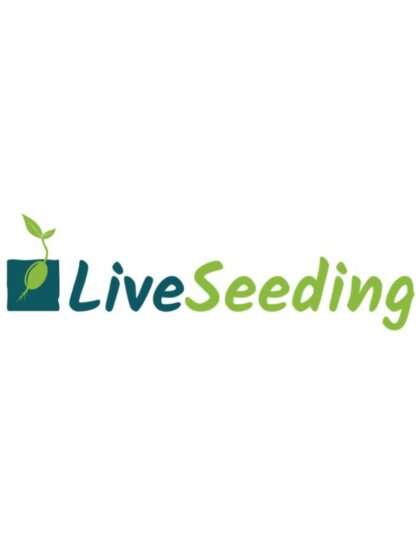
Six-fold increase in organic seeds needed in the next ten years in Europe - 2nd European Organic Seed Policy Conference shows pathways to make organic seeds a reality
The Spanish Presidency of the European Union put a spotlight on rural areas and agricultural resilience during a High-level Rural…


![Pesticides in conventional and organic farming [Fact-check]](https://www.organicseurope.bio/content/uploads/2022/09/comm_website_THUMBNAILS-420x540.png)

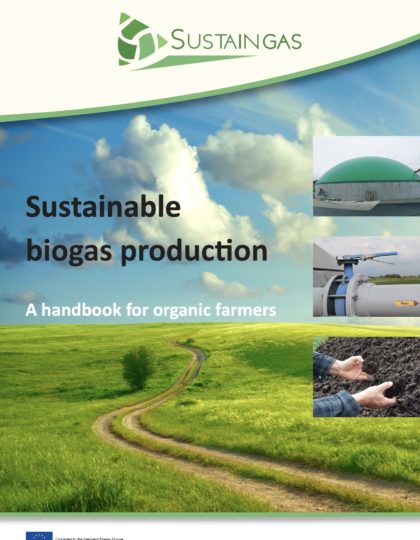


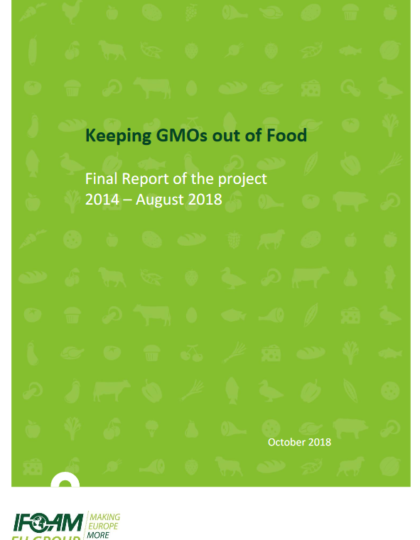



![[Summary] Economic impacts of labelling thresholds for the adventitious presence of genetically engineered organisms in conventional and organic seed](https://www.organicseurope.bio/content/uploads/2021/02/Capture-décran-2021-02-18-à-15.34.04-420x540.jpg)